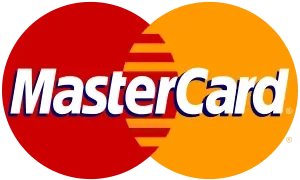Convenience Fees
Convenience Fees
Instant Accept gives you the ability to quickly and easily add, edit or remove convenience fees.
What is a Convenience Fee?
Convenience fees refer to charges or fees that a business or service provider may levy on customers for the convenience of using a particular payment method or service.
For example, if you buy a concert ticket online, the ticketing company may charge a convenience fee for the ease of buying the ticket from the comfort of your own home, rather than going to a physical box office. Similarly, if you choose to pay your utility bills online or over the phone, your service provider may charge a convenience fee for the convenience of using their payment portal.
Convenience fees are typically used to offset the costs that businesses incur for providing a particular service or payment method. While some customers may find convenience fees frustrating, they are generally considered to be a legitimate way for businesses to cover their costs and maintain profitability.
It’s important to note that convenience fees are different from surcharges or penalties, which are typically imposed for late payments, overages, or other breaches of contract.
Visa Rules for Convenience Fees

- The fee must be disclosed clearly and conspicuously to the customer before the transaction is completed.
- The fee must be a flat or fixed amount, rather than a percentage of the transaction.
- The fee must not exceed the actual cost of the service being provided, such as the cost of processing the payment.
- The fee must be charged equally to all customers who use the same payment method.
- The fee must be separately listed on the receipt provided to the customer.
It’s important to note that some jurisdictions may have additional regulations or restrictions on convenience fees, so merchants and service providers should always ensure that they are following all applicable laws and regulations.
Overall, Visa’s rules aim to ensure that convenience fees are transparent, reasonable, and not used to generate additional revenue for the merchant or service provider.
Mastercard Rules for Convenience Fees
Mastercard, like Visa, has rules regarding convenience fees that merchants and service providers must follow if they wish to accept Mastercard payments. These rules aim to ensure that convenience fees are transparent, reasonable, and not used to generate additional revenue for the merchant or service provider.
Mastercard’s rules for convenience fees are similar to Visa’s, and include:
- The fee must be disclosed clearly and conspicuously to the customer before the transaction is completed.
- The fee must be a flat or fixed amount, rather than a percentage of the transaction.
- The fee must not exceed the actual cost of the service being provided, such as the cost of processing the payment.
- The fee must be charged equally to all customers who use the same payment method.
- The fee must be separately listed on the receipt provided to the customer.

It’s worth noting that some jurisdictions may have additional regulations or restrictions on convenience fees, so merchants and service providers should always ensure that they are following all applicable laws and regulations.
In general, Mastercard’s rules aim to promote fairness and transparency in the use of convenience fees, while ensuring that merchants and service providers can cover their costs for providing specific payment methods or services.
American Express Rules for Convenience Fees
Like Visa and Mastercard, American Express (Amex) has its own rules regarding convenience fees that merchants and service providers must follow if they wish to accept Amex payments.
Amex’s rules state that merchants and service providers are generally not allowed to charge a convenience fee for accepting Amex credit cards. However, there are some exceptions. For example, Amex does allow merchants to charge a convenience fee for government-related payments, such as taxes or fines.
If a merchant wishes to charge a convenience fee for government-related payments, they must follow specific rules and requirements set out by Amex. These include:

- The fee must be disclosed clearly and conspicuously to the customer before the transaction is completed.
- The fee must be a flat or fixed amount, rather than a percentage of the transaction.
- The fee must not exceed the actual cost of the service being provided, such as the cost of processing the payment.
- The fee must be charged equally to all customers who use the same payment method.
- The fee must be separately listed on the receipt provided to the customer.
Discover and Convenience Fee Rules
Discover, like Visa, Mastercard, and Amex, has rules regarding convenience fees that merchants and service providers must follow if they wish to accept Discover payments.
Discover’s rules for convenience fees are similar to those of other payment card networks, and include:

- The fee must be disclosed clearly and conspicuously to the customer before the transaction is completed.
- The fee must be a flat or fixed amount, rather than a percentage of the transaction.
- The fee must not exceed the actual cost of the service being provided, such as the cost of processing the payment.
- The fee must be charged equally to all customers who use the same payment method.
- The fee must be separately listed on the receipt provided to the customer.
Discover’s rules aim to ensure that convenience fees are transparent, reasonable, and not used to generate additional revenue for the merchant or service provider. Merchants and service providers must ensure that they are following all applicable laws and regulations regarding convenience fees, which may vary by jurisdiction.
For the most part, Discover’s rules aim to promote fairness and transparency in the use of convenience fees, while ensuring that merchants and service providers can cover their costs for providing specific payment methods or services.
Convenience Fees and the Card Network Rules Summary
In conclusion here is a brief summary of some of the most important rules and points merchants need to pay attention to when considering whether or not to implement convenience fees.
Convenience fees are an additional charge that merchants or service providers impose on customers for the convenience of using a particular payment method, such as a credit or debit card. Payment card networks like Visa, Mastercard, Amex, and Discover have rules in place that merchants and service providers must adhere to if they want to accept payments using their networks.
One of the key rules regarding convenience fees is that they must be disclosed clearly and conspicuously to the customer before the transaction is completed. Additionally, convenience fees must be a flat or fixed amount and not a percentage of the transaction. The fee must also not exceed the actual cost of the service being provided, such as the cost of processing the payment.
It’s important to note that convenience fees must be charged equally to all customers who use the same payment method, and the fee must be separately listed on the receipt provided to the customer. Some payment card networks may have specific rules regarding the types of transactions for which convenience fees may be charged, such as government-related payments or certain types of services.
Merchants and service providers must ensure that they are following all applicable laws and regulations regarding convenience fees, which may vary by jurisdiction. It’s always a good idea for businesses to stay up to date on the latest rules and regulations in their area to avoid any potential legal issues.
Disclaimer: Card Network Rules are as of April 2023.
